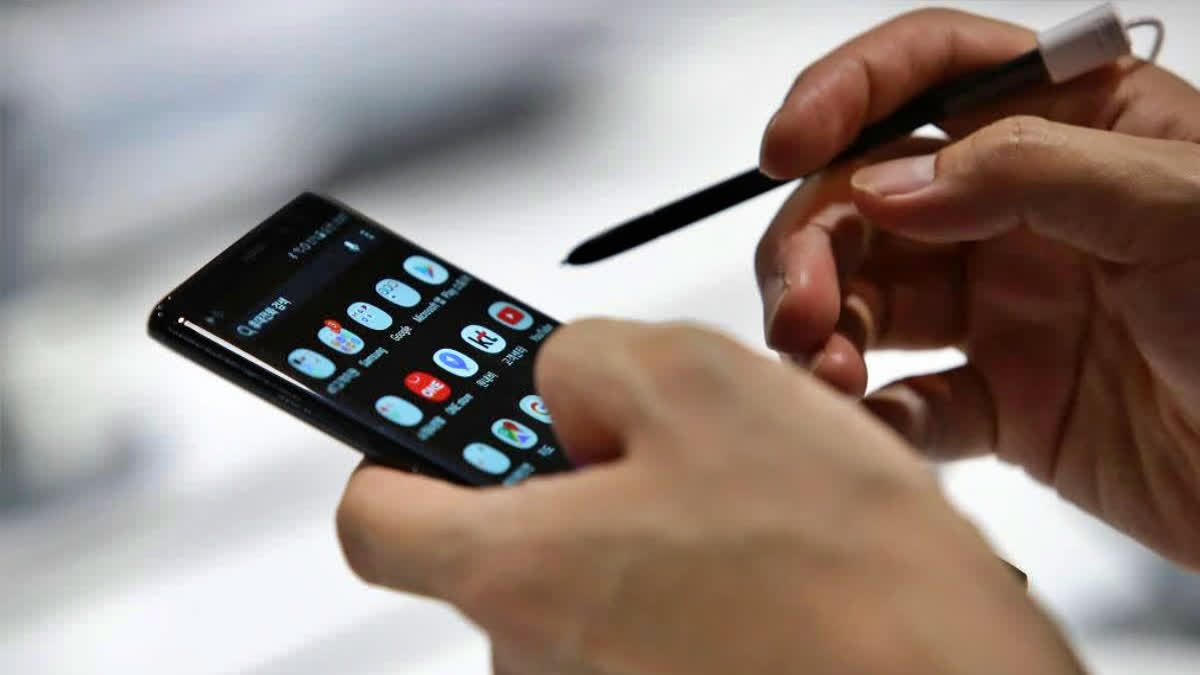New Delhi: The technical system deployed by the government is blocking 1.35 crore fraud calls daily and has helped save people's assets worth Rs 2,500 crore to date, Union Minister for Communications Jyotiraditya Scindia has said.
The minister, in an interview with PTI, said most of the spam calls originate from servers outside the country, and the systems have been able to block the majority of such fraudulent calls.
"In terms of the number of marketing calls you get in your phone, the number of fraud calls that come in, we have put in place a full system to be able to tackle that. Our DoT fraud detection network has saved close to about Rs 2,500 crore of people's assets today, as we speak, through Sanchar Sathi and Chakshu," Scindia said.
The systems have led to the disconnection of close to about 2.9 lakh phones and blocked close to about 1.8 million headers that were used for sending out messages, he added.
"Along with that, (there) was another vicarious method through which people would use servers outside India, which would masquerade themselves as a +91 number (Indian number). We have put into place software that stops these calls that are blocking an average of 1.35 crore such calls per day," the minister said.
The government has put in a new software where it is integrating law enforcement agencies as well as banks, he said, adding that "520 agencies have been onboarded".
While charting out his priorities, Scindia said that rolling out of Atmanirbhar (self-reliant) BSNL 5G by May and 4G for all under the saturation scheme by April are among his top priorities, along with notifying all rules left under the Telecommunications Act 2023 by December.
He said that a plan to roll out 1 lakh base stations for BSNL 4G is underway, of which roll out of which 50,000 towers have been completed.
"By April-May next year, we will roll out 1 lakh BTSs, which means we will have our own domestic publicly-owned company rolling out 4G. The move from 4G to 5G then, is only tweaking the core a little bit, as well as adding an additional BTS. By April-May next year, hopefully, some sites will become 5G enabled as well, within the BSNL system. So, that's the alacrity with which we are working. That's my first priority," Scindia said.
The government wants BSNL to be one of the major players in the telecom sector and increase its market share and subscribers significantly.
"We have infused capital, we have supplied spectrum, we've allowed the company to grow. We would like to see exponential addition to that customer base and it becomes one of the formidable players in the telecom landscape in India. In the telecom space, we must continue to have three or four players in the game," Scindia said.
The minister said his second priority is to ensure 4G saturation across the country. "We have close to about 37,000 villages that are left with connectivity on 4G in the country. A lot of them are in very distant areas. We are looking at making sure that we have 100 per cent saturation on 4G by March-April, next year," he said.
Scindia said that out of about 27,000 BTS required, 10,000 have already been installed. The 4G saturation will provide coverage to roughly 1.6 crore population.
The minister also said that after assuming office, he issued notification of the Telecom Act, passed in Parliament last November, and now he has to mandatorily issue all rules by December.
"The first thing I did when I assumed office was I issued the notification of the Telecom Act. Why is that important? That's important because the minute you do that, then your 180-day counter starts, and within six months, mandatorily, you have to issue all the rules. So by the end of December, the total of those 31 rules, we have done almost about 14 or 15, and the balance we hope to have done by the end of December," he added.
The Telecommunications Act 2023 supersedes the existing and archaic regulatory framework for the telecommunication sector, based on the Indian Telegraph Act, 1885, the Wireless Telegraphy Act (1933), and the Telegraph Wires (Unlawful Possession) Act (1950).
The government has partially notified rules under the Act with effect from June 26. The rules allow the government to take over the control and management of any or all of any telecommunication services or network, in the interest of national security, friendly relations with foreign states, or in the event of war.
With these new rules in place, the universal service obligation fund will become Digital Bharat Nidhi, which can be used for funding research and development and pilot projects instead of just supporting the establishment of telecom services in rural areas.
The new rules add a mandate of protecting users from spam and malicious communications.
Read More



